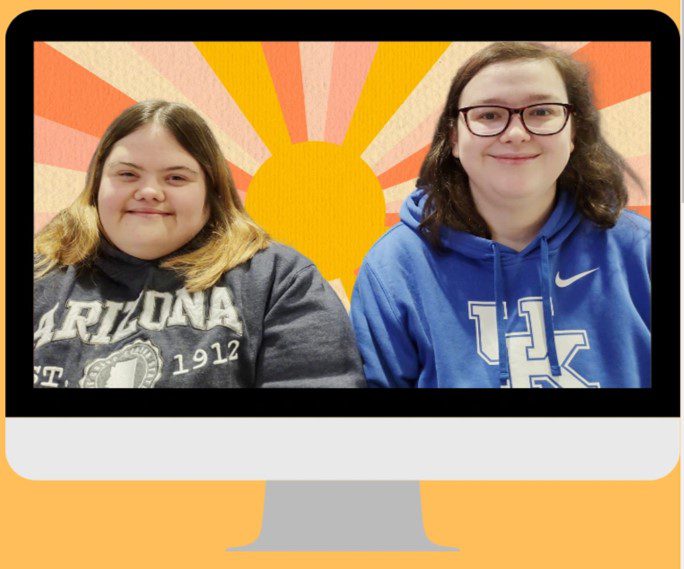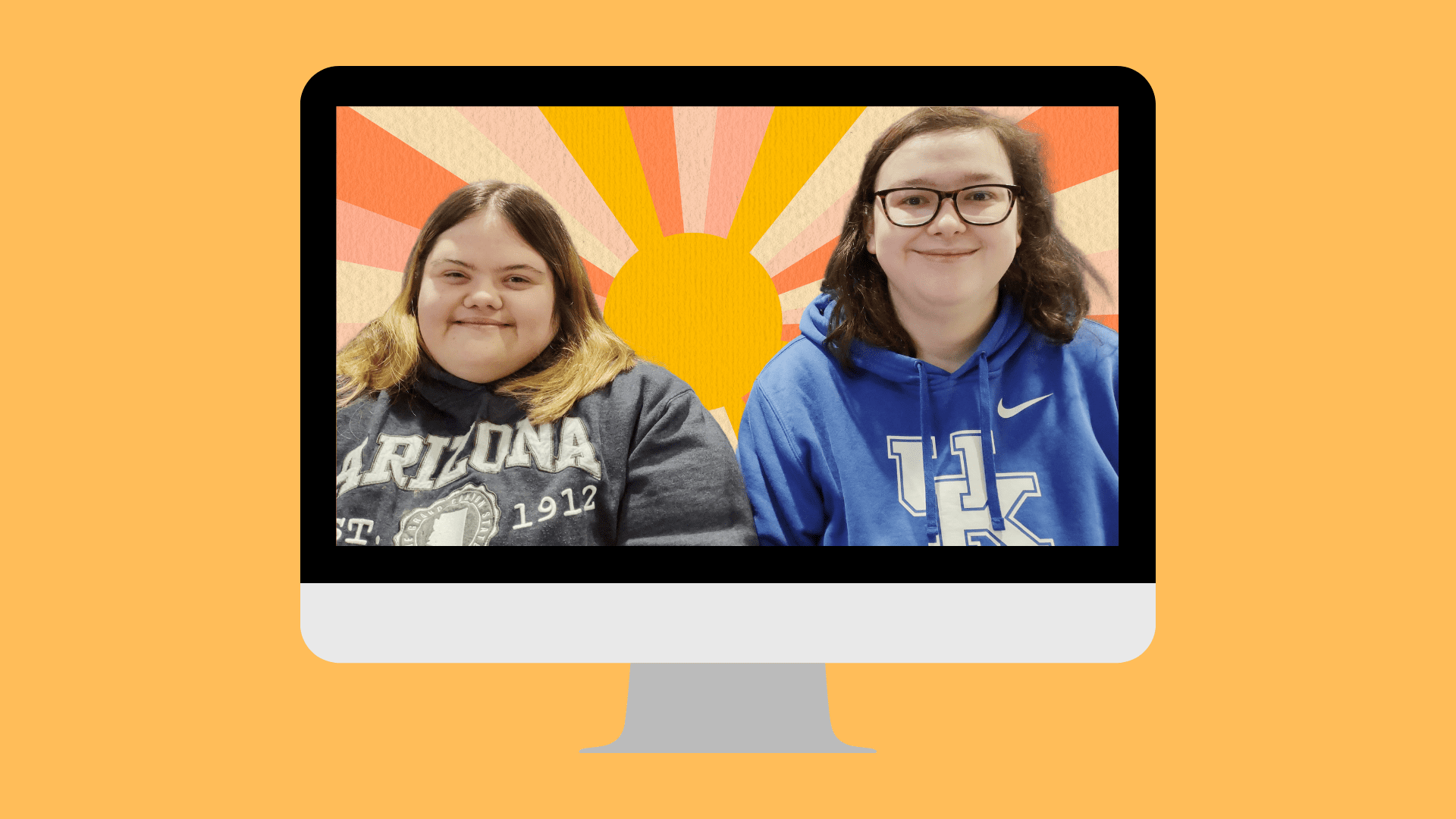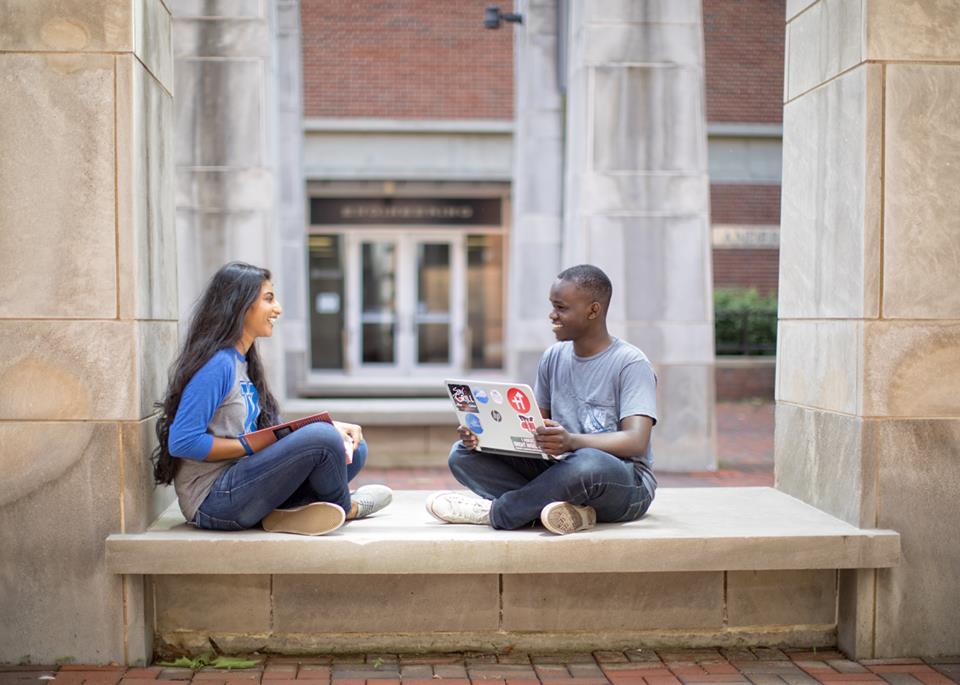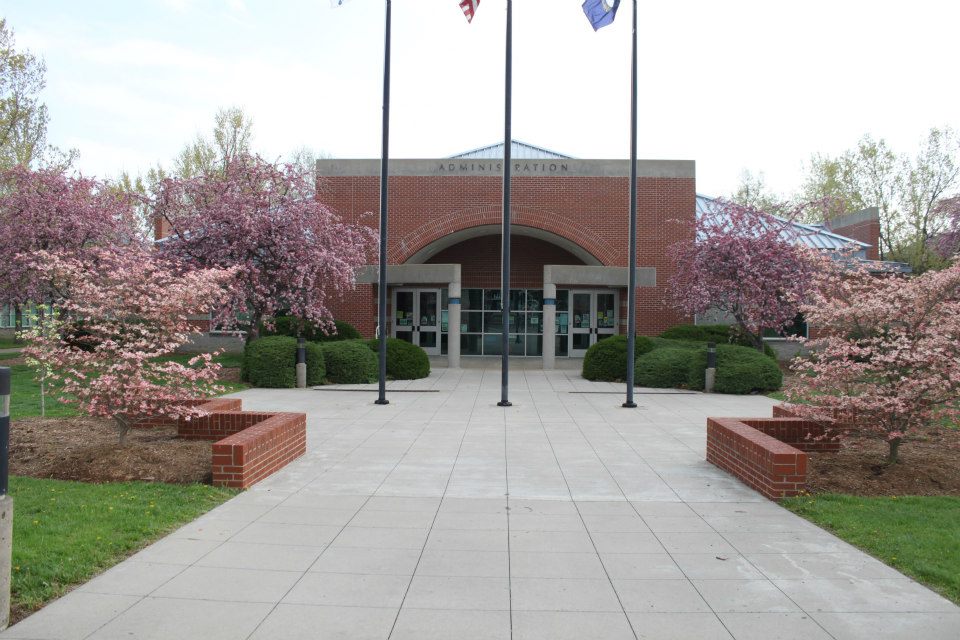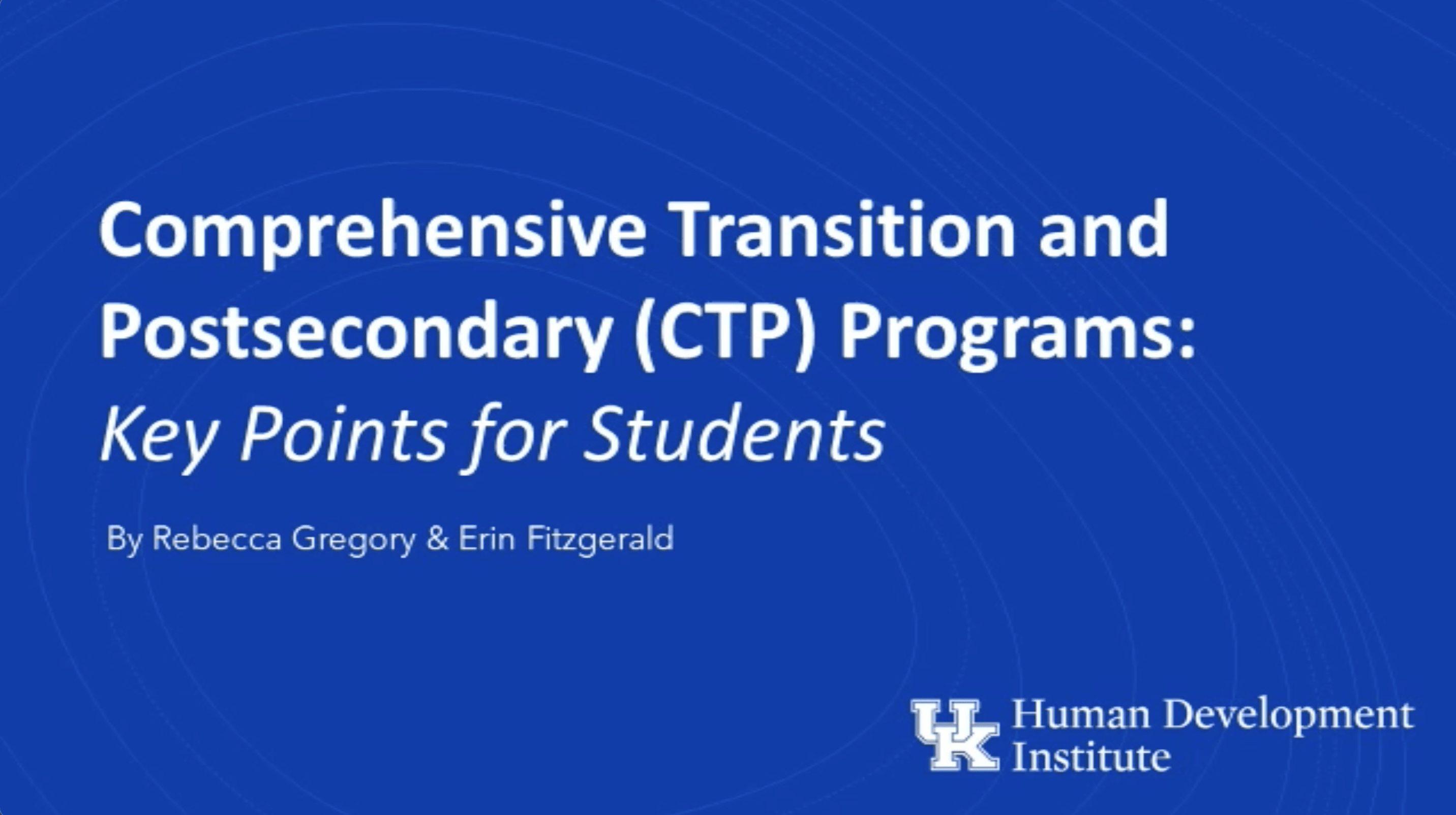University of Kentucky College and Career Studies Program Celebrates Students
The Human Development Institute at the University of Kentucky recognized the following Kentucky Supported Higher Education Partnership (KSHEP) students for their achievements in a ceremony on May 2, 2024:
Completion of College and Career Studies program at the University of Kentucky
- Sara Jones (primary focus on Universal Design, Animal Care and Support, and Storytelling in Literature).
- Justin Harmon (primary focus on Universal Design, Theatre Arts, and Advocacy and Inclusion).
Completion of Undergraduate Certificate in Universal Design - Callie Baesler
- Kate Boudreaux
- Will Lyon
- Sara Jones
- Justin Harmon
Justin Harmon
The College and Career Studies (CCS) program at the University of Kentucky helped me achieve my dream of going to college.
I am thankful for the opportunity it gave me to attend many interesting classes, learn new things, make new friends, and experience campus life. I will forever be grateful for my time as a CCS student at UK, and will always be proud to call myself an official Wildcat!
Justin Harmon, CCS alum
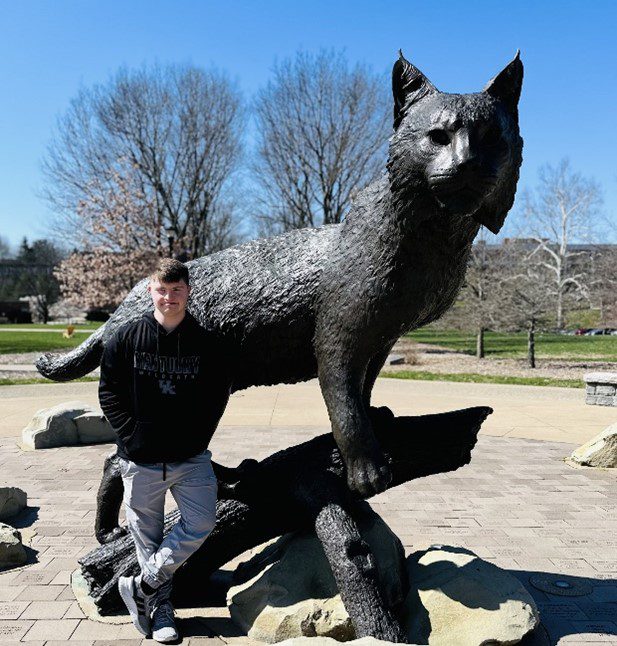
Justin in front of UK Wildcat statue
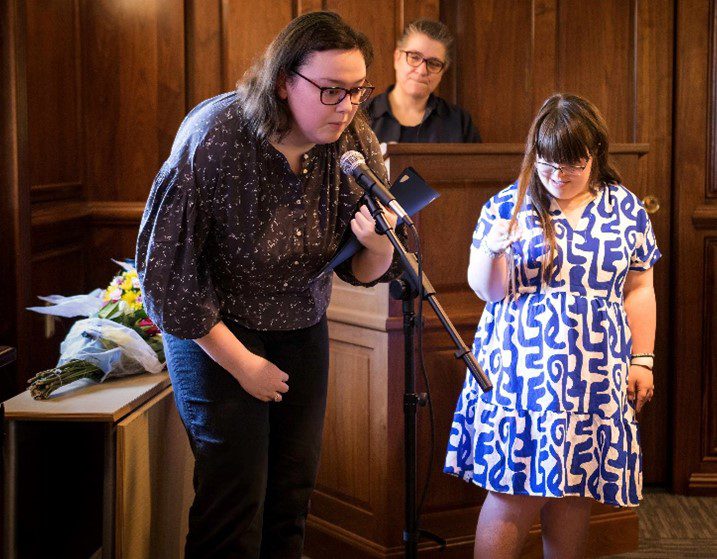
Sara Jones (left), Ann Switzer (right), and Erin Fitzgerald (background)
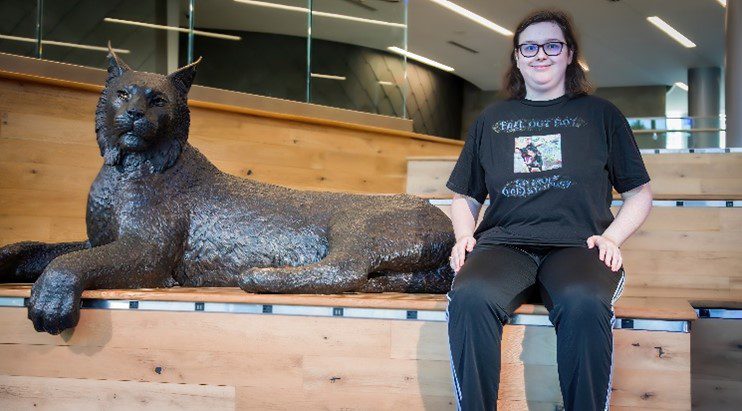
Sara sitting with UK Wildcat statue
Sara Jones
Things I learned in college:
Sara Jones, CCS Alum
- I learned ways to communicate effectively with others.
- I can use what I have learned about Universal Design and Universal Design for Learning in many environments.
- I learned that I am most interested in caring for and supporting animals when thinking about a future career.
- I learned to be an advocate for myself and others for resources to be inclusive and accessible to everyone.
- I learned that I can overcome challenges that come with being a neurodivergent person.
- I learned that I can be successful.
Thanks to everyone who made the 2023/2024 academic year a success! Congrats to all the students who completed a milestone this year, and also to students who completed their first year. We can’t wait to see what you all do next!
